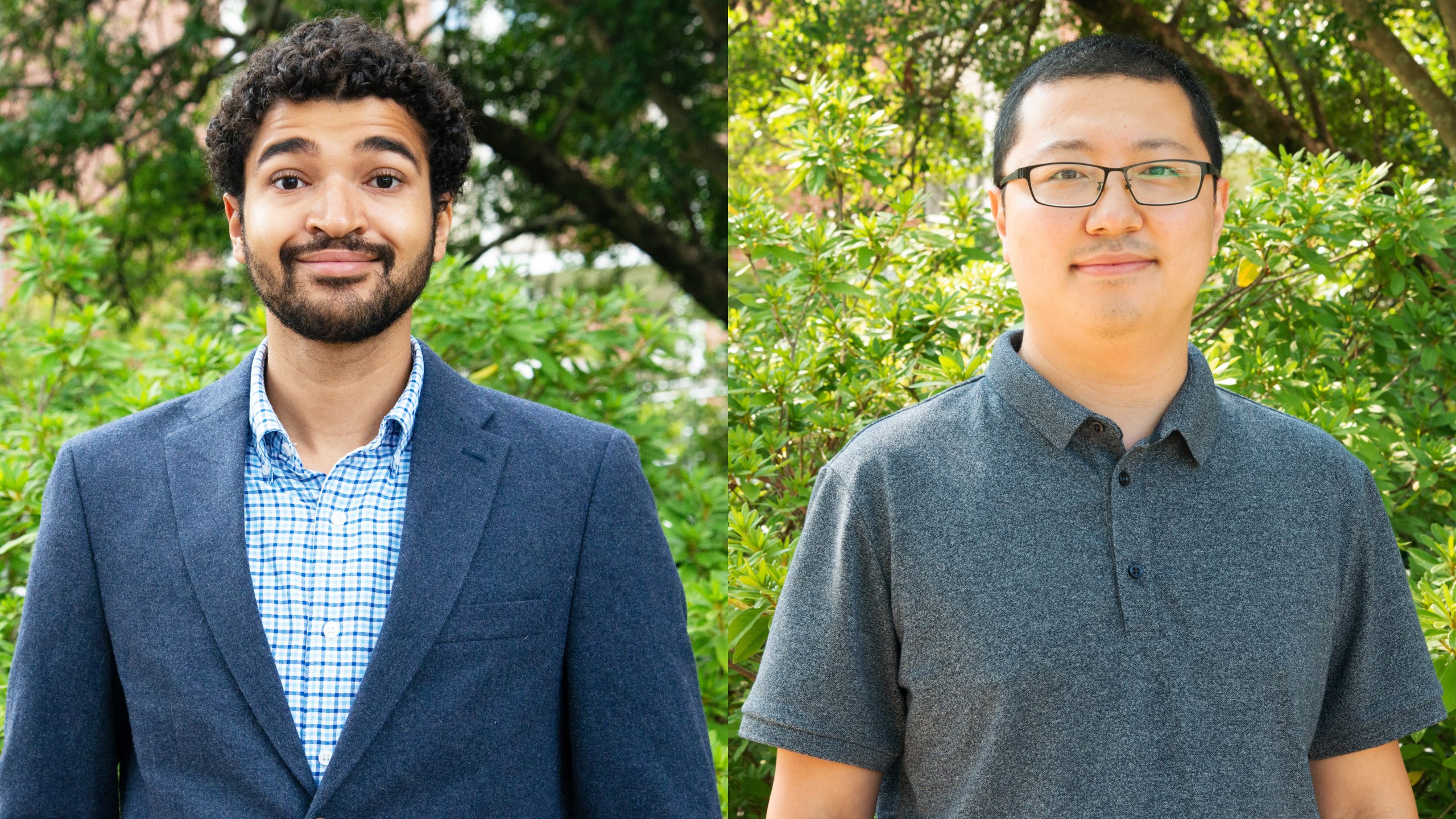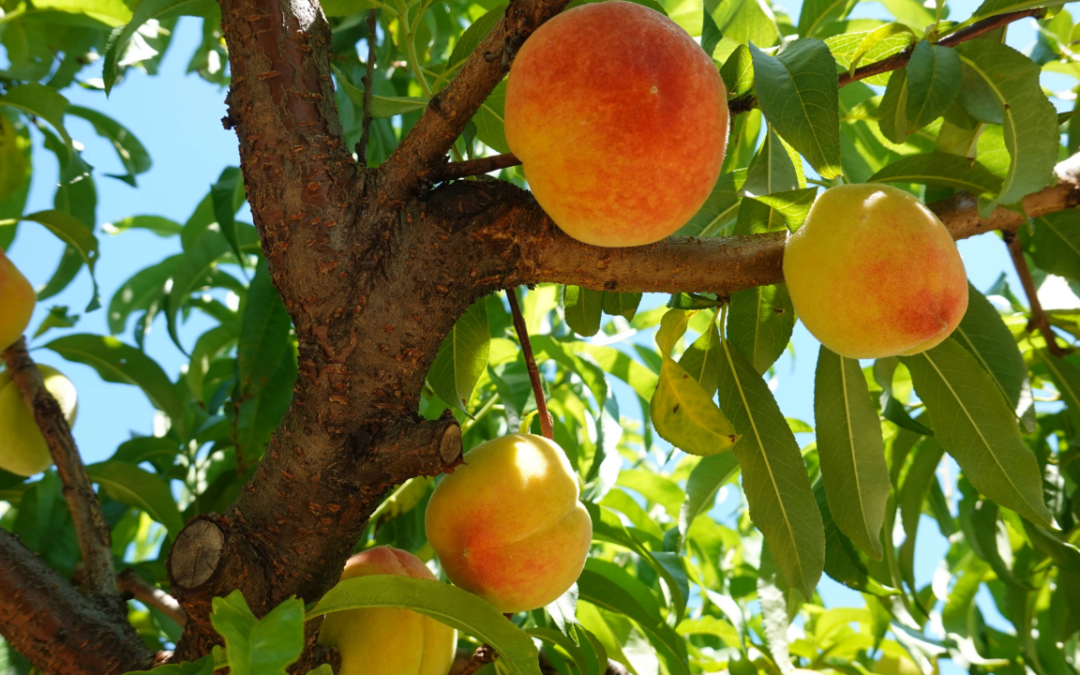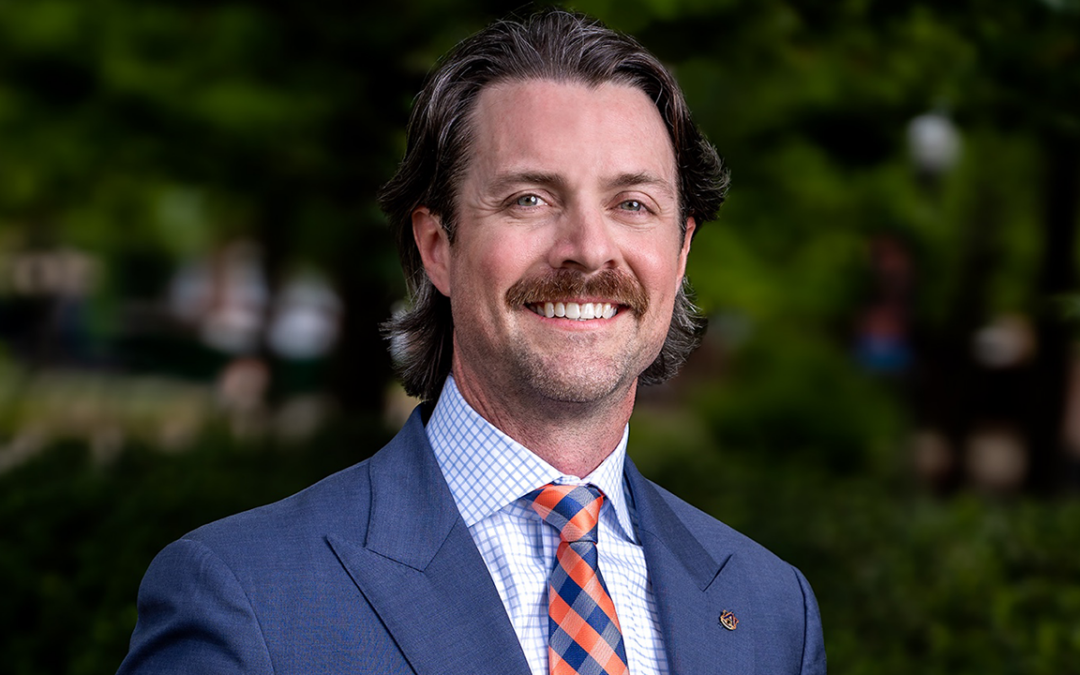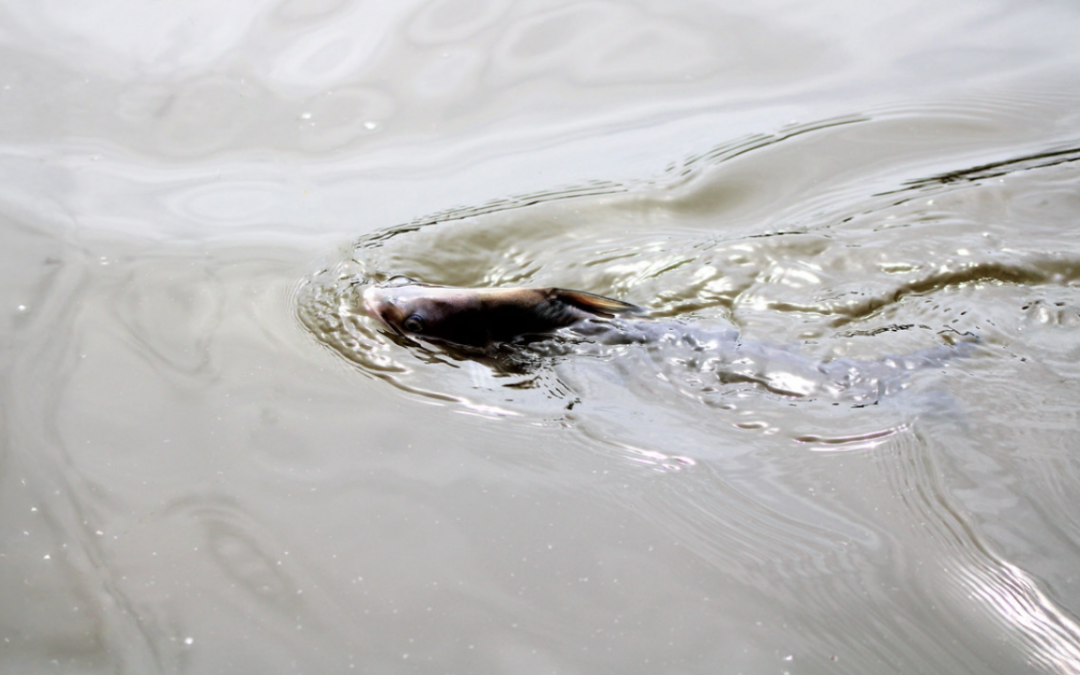Two faculty members from the College of Agriculture’s Department of Agricultural Economics & Rural Sociology are being honored nationally for their published works.
Assistant Professor Wenying Li has received the 2022 Best Economics Paper in Food Safety and Nutrition, Agricultural & Applied Economics Association, for the American Journal of Agricultural Economics (AJAE). His paper is titled “Intended and Unintended Consequences of Salient Nutrition Labels.”
Li’s colleague in the department, Assistant Professor and Alabama Extension Economist Wendiam Sawadgo, has been selected to receive the Choices Magazine Outstanding Article Award for “The Invisible Elephant: Disadoption of Conservation Practices in the United States.” The magazine is the principal outreach vehicle of The Applied Agricultural and Applied Economics Association.
“Our department and Auburn University are fortunate to have two young scholars with such accomplishments,” said Joshua Duke, department head and professor for the Department of Agricultural Economics & Rural Sociology. “In only a few years, Dr. Sawadgo and Dr. Li have respectively built renowned Extension and research programs — programs that are operating on par with the best scholars in the United States.”
For Li, it is his second award in two years for articles published in the American Journal of Agricultural Economics.
“Publishing two articles in this journal during one’s first two years on the faculty is a distinguished accomplishment, but also winning two professional awards for having the best article shows that Dr. Li’s research program is operating at the highest level,” Duke said.
“I’m deeply honored to receive this award from the AAEA in the Food Safety and Nutrition section,” Li said. “This recognition, following last year’s outstanding AJAE paper award, underscores the collaborative research environment fostered by our department. The great feedback from my colleagues and workshops at Auburn has been instrumental in shaping this work. This recognition serves as a powerful motivation for me to persist in my contributions to the agricultural economic fields of food, health and nutrition.”
Li’s paper studies the impact of NuVal nutrition labels on food purchasing. The NuVal System is a nutritional ranking system that provides comprehensive nutritional information in one simple number between one and 100; the higher the score, the better the products nutrient value. The ratings are developed independently by a team of nutrition and medical experts without retailer or manufacturer influence.
“While these labels can positively influence consumer choices, suppliers often adjust prices in response, which can counteract up to 42% of the labels’ benefits,” Li said. “The study suggests that previous research may have overestimated the benefits of such labels by not considering these supplier responses. The labels can also unintentionally widen the nutritional gap between healthier and less healthy consumers due to the price changes they induce.”
Li’s co-authors include Erik Andrew Finkelstein, professor of Health Services and Systems Research at the Duke-NUS Medical School, Singapore, and the executive director of the Lien Centre for Palliative Care; and Chen Zhen, University of Georgia, Georgia Athletic Association Professor in Food Choice, Obesity, and Health.
Winning the Outstanding Choices Article Award is a remarkable achievement for Sawadgo because, in part, he has been able to demonstrate elite economic communication skills at an early stage of his career, Duke said.
“Choices is an academic magazine designed to bring cutting-edge and policy-relevant research findings to agricultural policy makers and industry leaders, and authors are required to do so without the mathematics and statistics one usually finds in an economics article,” he said. “In other words, research results must be useable by a broad audience.”
“It is exciting to receive this award, especially being a faculty member with a majority Extension appointment,” Sawadgo said. “Given my appointment, my research focuses on creating products that are accessible to academics, policymakers and the general public, and Choices Magazine is an excellent outlet for outreach publications in my field. Having such work recognized at a national stage is truly an honor.”
Sawadgo’s article evaluates the role that disadoption of conservation practices such as cover crops and no-till plays in hindering the advancement of widespread adoption of these practices.
“There is a growing literature of research encouraging the use of agricultural conservation practices, so this work highlighted some of the challenges that remain,” he said. “I am lucky to work with so many talented researchers who work with cover crops and other conservation practices at Auburn University, both in the Department of Agricultural Economics & Rural Sociology and across the College of Agriculture. Conversations with my colleagues have greatly helped me improve the work I do in this area.”
The article finds that cover crop adoption increased by 50% between 2012 and 2017, while showing substantial variability across the United States.
The use of conservation tillage, including no-till, followed varying patterns through time and across main cash crops—an initial period of substantial growth in conservation tillage and no-till wheat (2004–2009) and soybeans (2002–2006) was followed by less rapid gains for wheat (2009–2017) and a decline in conservation tillage and no-till soybeans (2006–2012), while growth in conservation tillage and no-till use was modest in corn and cotton.
Sawadgo authored the article with Iowa State University Associate Professor Alejandro Plastina.
Li and Sawadgo will be recognized during the Agricultural and Applied Economics Association’s 2023 Annual Meeting in Washington, D.C., on July 24-25.
Two Auburn agricultural economists recognized for published works

Subscribe
Contact Us

Paul Hollis is a communications specialist with the College of Agriculture and program coordinator and instructor for the Agricultural Communications program. He received his bachelor's and master's degrees from Auburn University.
Recent News
Related Articles

Protecting Alabama peaches from bacterial spot
Right in the heart of central Alabama, research is conducted throughout the year to find ways to protect one of the state’s most precious commodities—peaches. Among the most damaging diseases affecting stone fruit—especially peaches—is bacterial spot. As a result,...

Warren receives top national award for parasitology research
Postdoc recognized by the American Society of Parasitologists A postdoctoral fellow in the School of Fisheries, Aquaculture & Aquatic Sciences recently received the highest national honor bestowed upon early-career researchers in the field of parasitology. Micah...

Your Pond, Your Bug, Your Vaccine
AU researchers work toward getting orally-delivered vaccines to catfish farmers
